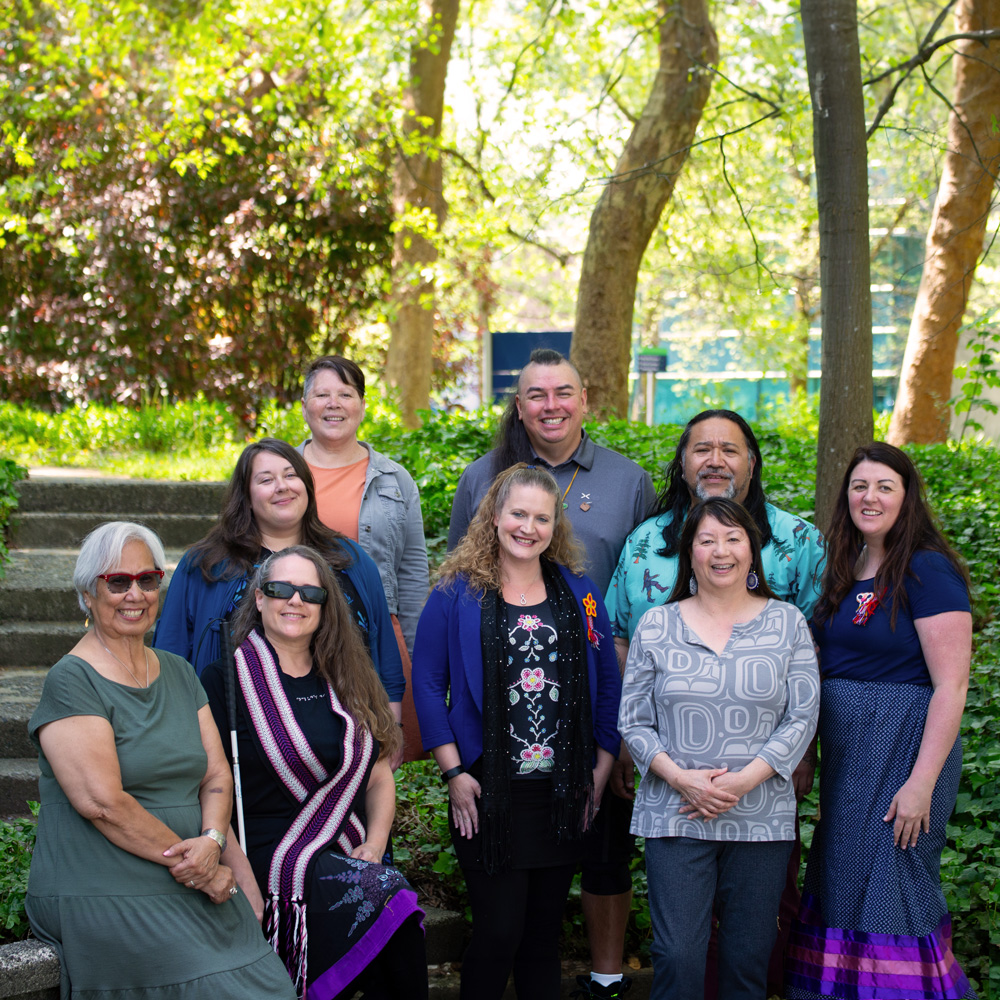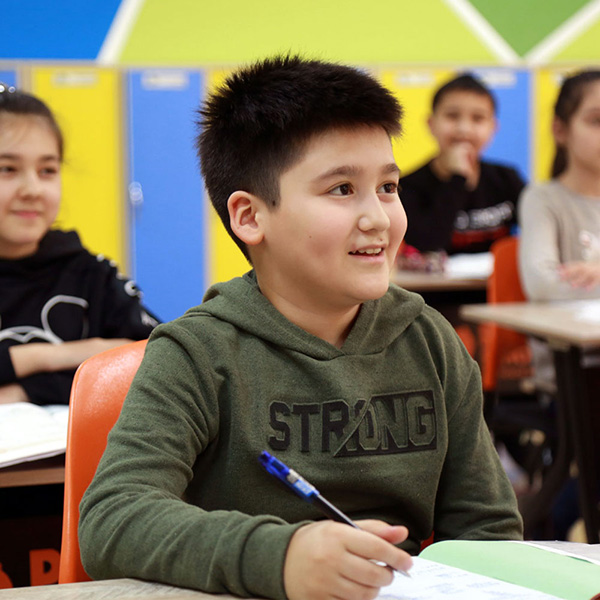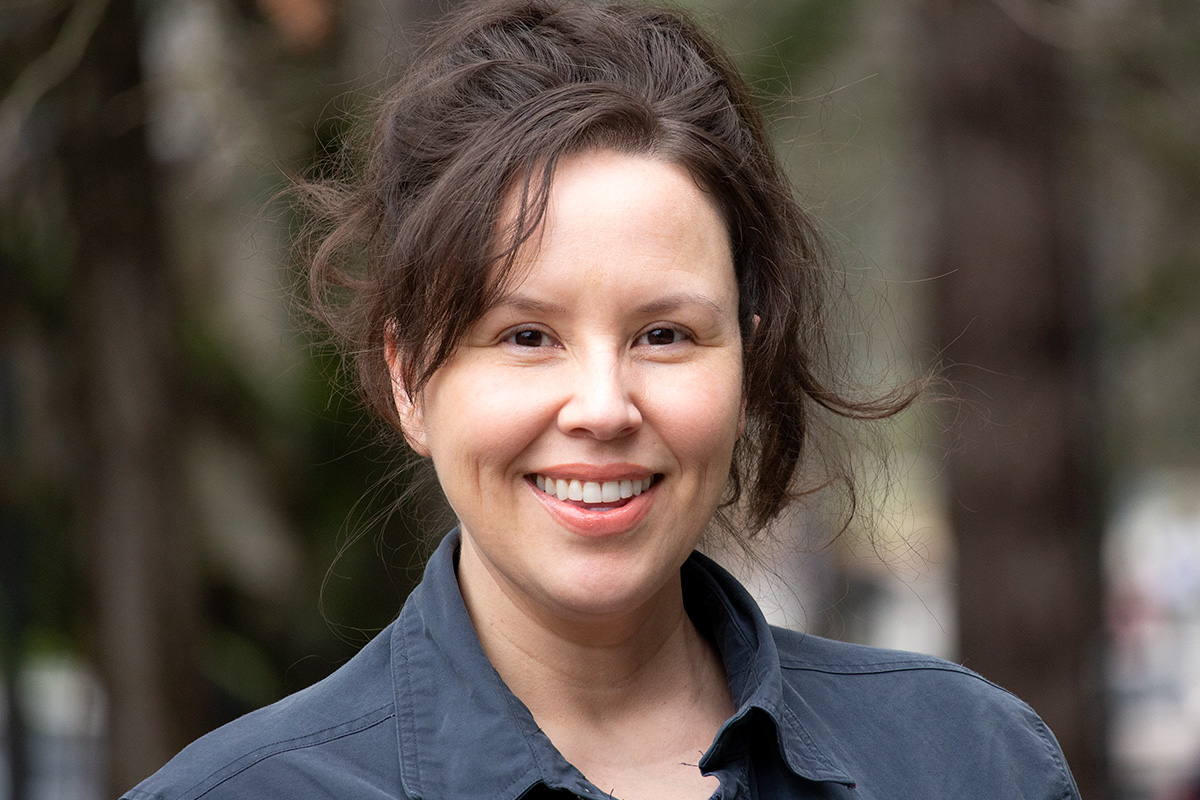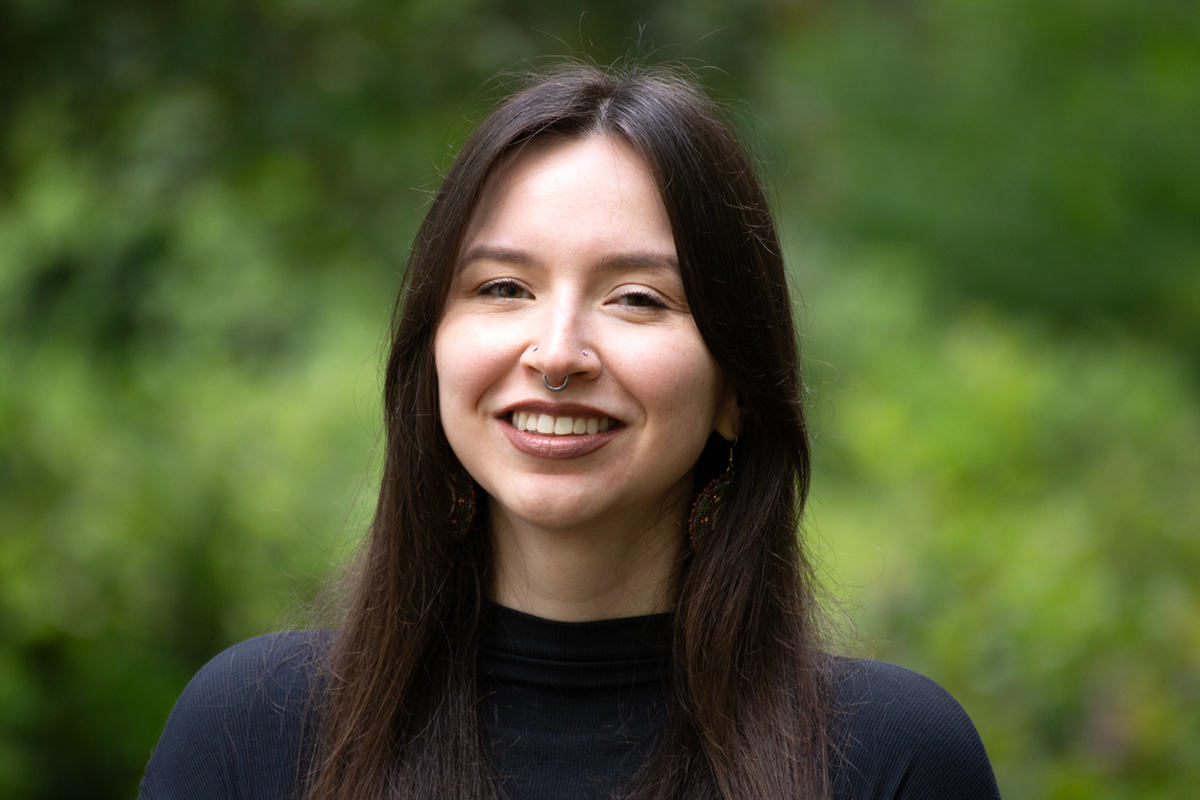

Indigenous Initiatives
Indigenous initiatives at the Human Early Learning Partnership (HELP) aspire to engage in research, data collection and reporting, and engagement and consultation in a culturally-responsive and safe manner that acknowledges the history, language, and culture of Indigenous children and their families. HELP faculty, staff and students continue to engage in learning about the importance of language, culture, identity, traditional land ties, and self-determination for First Nations, Inuit and Métis communities.
HELP also recognizes the importance of conducting research that is oriented by First Nations, Inuit and Métis ways of knowing and knowledge sharing, and the Principles of OCAPTM (Ownership, Control, Access and Possession). Since 2020, HELP has collected EDI and MDI data for Indigenous children in participating schools across BC. First Nations, Inuit and Métis governments, communities and organizations and Indigenous Education Councils are able to request these reports. Access the Indigenous Data Sharing Request form here.
To support us in this journey, HELP has established and works alongside an Aboriginal Steering Committee, whose members guide and advise on our work.
ABORIGINAL STEERING COMMITTEE
The Aboriginal Steering Committee (ASC) at HELP was established in 2003. Current ASC members are leaders, experts, and Elders from First Nation and Métis communities in BC and Canada. They bring with them community-based experiences and knowledge to HELP. This knowledge and experience support a deeper understanding of the social and cultural determinants of Indigenous children’s health and well-being in the context of Canada’s colonial history and legacy of residential schools. The ASC ensures that HELP research activities involving First Nations, Métis, and Inuit communities are reflective of their diverse histories, cultures, languages, values, and ways of knowing and being. Visit our Aboriginal Steering Committee page to find out more.
Indigenous Data Initiatives
Overview
HELP’s questionnaires provide opportunities for parents and students to self-identify as First Nations, Inuit and/or Métis, and to share additional information on the nations, communities or settlements and languages to which they are connected. HELP recognizes and respects that Indigenous families, communities, and governments have sovereignty and jurisdiction over their children and their information and, therefore, all data collected from Monitoring System questionnaires.
With the guidance of the ASC, HELP has developed data protocols to ensure First Nations, Inuit and Métis governments, communities and organizations have timely access to data to plan, manage and account for investments and outcomes associated with the well-being of children and families. The Monitoring System data collected from or for Indigenous children are provided back to community through reports and briefing presentations to Chief and Councils, Indigenous Education Council, local gatherings, and various levels of Indigenous organizations, communities, and Nations.
To learn more about data request and access protocols, please contact Kinwa Bluesky, Senior Manager, Indigenous Initiatives.
Who can request data?
First Nations, Inuit, and Métis governments, communities and organizations, and Indigenous Education Councils can request data.
Research Ethics and Data Governance
Indigenous initiatives at HELP are guided by the First Nations Information Governance Centre (FNIGC) data governance strategy and principals, and ethical standards for research accepted by all academic institutions in Canada.
In answering the call for decolonizing data, HELP aims to align with the vision and mission articulated in the FNIGC’s First Nations Data Governance Strategy, released in 2020, to “strengthen First Nations institutions and communities to achieve data sovereignty and support the development of information governance and management at the community level through partnership and in alignment with their distinct worldviews.” HELP also maintains accountability to both the FNIGC’s First Nations Principles of OCAPTM (ownership, control, access, and possession) and the Tri-Council Policy Statement: Ethical Conduct for Research Involving Humans, Chapter 9, Research Involving First Nations, Inuit & Métis Peoples of Canada.
Safeguarding these data is a responsibility that HELP takes very seriously, and follows the highest standards available, many of which are required by law. To ensure that the privacy and confidentiality of individuals is upheld, all of HELP’s systems and processes meet or exceed the requirements of provincial and federal privacy legislation. All HELP faculty, students and staff are required to complete both First Nations Principles of OCAP™ and Tri-Council trainings. Please visit HELP’s Safeguarding Personal Information page for more information.
Our Commitment
HELP is committed to ongoing partnership and collaboration to support Indigenous Peoples’ Data Governance
Orienting data collection approaches to prioritize language and identity
HELP is building a comprehensive list of all First Nations, Inuit and Métis languages. This language list supports population health surveys and resources that parents/caregivers, educators and children can use when completing a HELP survey or for general reference. The list is organized alphabetically and includes First Nation, Inuit, and Métis languages that are spoken across provinces and territories, and references traditional names, spellings, and respectful terminology. HELP aims to more fully support communities to access their children and youth’s Indigenous language data as part of their language revitalization efforts, and views this as a part of the ongoing, collective work toward change and improving the health and well-being of First Nations, Inuit and Métis children and their families.
These lists are part of an ongoing process to improve HELP’s approach to collecting language and nation data for First Nations, Inuit and Métis children and families. We invite people to review and contribute to these lists to keep them current and accurate. Please email us at indigenous.initiatives@help.ubc.ca.
Understanding Bias within HELP’s questionnaires
Assessing teacher bias on the Early Development Instrument (EDI)
In 2016, in response to concerns about the validity and potential bias of the EDI questionnaire for use with Indigenous children, the First Nations Education Steering Committee commissioned an independent assessment of the EDI to assess potential bias in results. This report details the findings of a review of the literature, psychometrics, and administrative procedures regarding the EDI with respect to Indigenous children, and of an experimental simulation of the EDI assessment. While the study found no bias on EDI, HELP acknowledges that the EDI, along with HELP’s other questionnaires, were not developed by Indigenous researchers for Indigenous children, and may not align with First Nations, Inuit and Métis communities’ concepts regarding, and approaches to early childhood health and well-being. Read the full bias study report.

Upholding responsibilities to children and communities
Children’s voices matter
One of the core beliefs that is foundational to the MDI is that children’s voices deserve to be heard and responded to by the people across the multiple contexts in which they live. Asking children about their feelings, relationships, environments, and daily lives affords them a critical opportunity to provide information about their well-being and the assets in their lives that would otherwise be inaccessible. Learning from children directly— in their own voices—can provide essential data to support evidence-based decision making for the design and implementation of programs and practices that promote children’s social and emotional health and well-being, funding priorities, and policy development across sectors. Hear from Aboriginal Steering Committee members about the importance of the MDI in supporting learning by listening to Indigenous children. Watch now

Supporting the sharing and use of data in meaningful ways
Indigenous regional and territorial governments may benefit from evidence and information about children and families in their communities, to support self-determination and decision-making. Monitoring System data can contribute to initiatives dedicated to improving outcomes and serving the needs of their citizens, especially for their children and youth.
HELP is engaged in the sharing of disaggregated Indigenous data with Indigenous governments, organizations and communities committed to the health and well-being of First Nations, Inuit and Métis children. This includes the creation of reports and presentations, and engaging in ongoing discussions with these groups regarding the meaning and potential for using these data for community or nation-based planning.
If you are interested in discussing data access, reporting and engagement opportunities, please email Kinwa Bluesky, Senior Manager of Indigenous Initiatives: indigenous.initiatives@help.ubc.ca.
Engaging organizational dialogue and reflection
The Bannock and Banter series is led by Kinwa Bluesky, Senior Manager, Indigenous Initiatives, and supported by members of the Aboriginal Steering Committee. Bannock & Banter is a kitchen table-style discussion offering a time and space for HELP faculty, students and staff to discuss and reflect on our individual and collective responsibilities toward the United Nations Declaration of the Rights of the Child, in conjunction with the United Nations Declaration on the Rights of Indigenous Peoples, the Truth and Reconciliation’s Calls to Action, and the Murdered and National Inquiry into Missing and Murdered Indigenous Women and Girls’ Calls for Justice. HELP centers these calls and declarations to orient our ongoing reconciliation work and to support our collective efforts to decolonize and empower Indigenous communities, families, and children.
Resources
UBC Indigenous Strategic Plan
Truth and Reconciliation Commission of Canada Reports
The First Nations Information Governance Centre - A First Nations Data Governance Strategy
Reclaiming Power and Place: The Final Report of the National Inquiry into Missing and Murdered indigenous Women, Girls, and 2SLGBTQQIA+
Reconciliation Pole
First Peoples’ Cultural Council – First Peoples’ Map
Indigenous Nations and Language List
The EDI and MDI projects use informed passive consent. With informed passive consent, parents/guardians are fully informed of the nature of the EDI and MDI projects and the use of the information but are not required to actively complete a consent form. Instead, parents/guardians complete a withdrawal form or contact their child’s teacher should they not want their child to participate.
The EDI and MDI projects aim to understand where systematic differences in well-being and healthy development occur, which requires data that are representative of the whole population in communities and the use of passive consent.
HELP has undertaken an in-depth review of the informed passive consent approach and found that this method can be used as long as parents/guardians have sufficient time to decline participation, and translations of consent forms are available in languages representative of the parent/guardian population. Informed passive consent is used because the project is considered low risk, and provides beneficial community information. To learn more about the use of informed passive consent, please contact privacy@help.ubc.ca.
Yes. Participation in the EDI and MDI is voluntary and we respect your wishes to have your child removed from data collection. If that is the case please contact your child’s school or email the EDI/MDI team directly at edi@help.ubc.ca or mdi@help.ubc.ca to withdraw your child.
HELP recognizes and respects that First Nations, Inuit and Métis families, communities, and governments have sovereignty and jurisdiction over their children and, therefore, have the right to access any and all data collected for their children. The Aboriginal Steering Committee at HELP guides data collection, reporting, and sharing of research with Indigenous Peoples. HELP has developed new ways to support the sharing of Indigenous disaggregated data with Indigenous governments and Indigenous-led organizations and institutions committed to the health and well-being of Indigenous children.
HELP continues to build a comprehensive list of First Nations, Métis Nation Homeland (including Métis Settlements and historic Métis communities), and Inuit Nunangat communities and all their spoken languages. This resource list supports population health surveys and resources that children, parents/caregivers, and educators can use when completing a HELP survey or for general reference. This resource list is organized by First Nations, Métis Nation Homeland, and Inuit Nunangat communities across provinces and territories, and references self-identified traditional names, spellings, and respectful terminology.
If you are an Indigenous person, we invite you to locate your community and language for accuracy. Any contributions to this resource list help to keep the information current and updated. Please email us at indigenous.initiatives@help.ubc.ca.
Through guidance of the Aboriginal Steering Committee (ASC), we continue to develop procedures to support Indigenous governments, such as First Nation Chief and Councils, Métis Nation BC, and Indigenous Education Committees, that require timely access to data to plan, manage, and account for investments and outcomes associated with their citizens – their children and families’ health and well-being. We know that like any other government, Indigenous governments need data to provide evidence and information for effectively exercising self-determination and decision-making for achieving improved outcomes and serving their needs, especially for their children and youth. HELP is committed to further developing its intent and approaches to support Indigenous Peoples and their data governance and sovereignty in true partnership and collaboration.
By visiting our Indigenous Data Sharing Request form.
Key Contacts

Kinwa Bluesky
Senior Manager, Indigenous Initiatives

